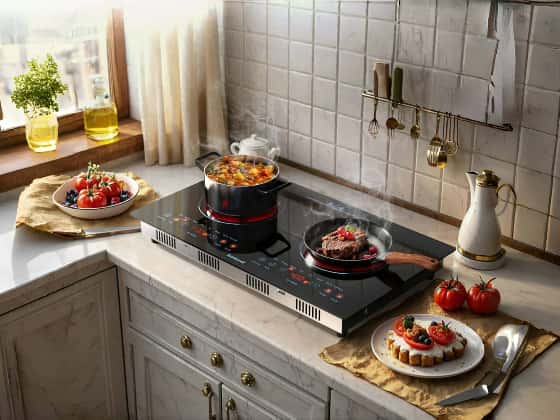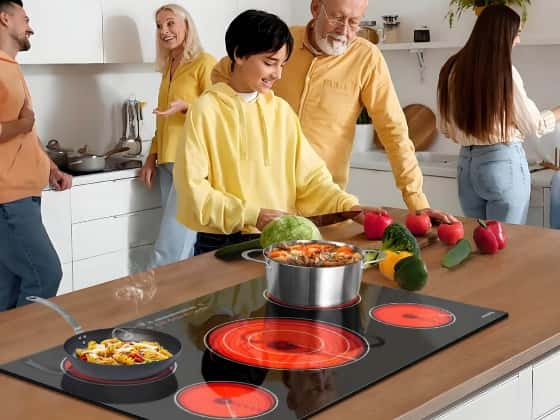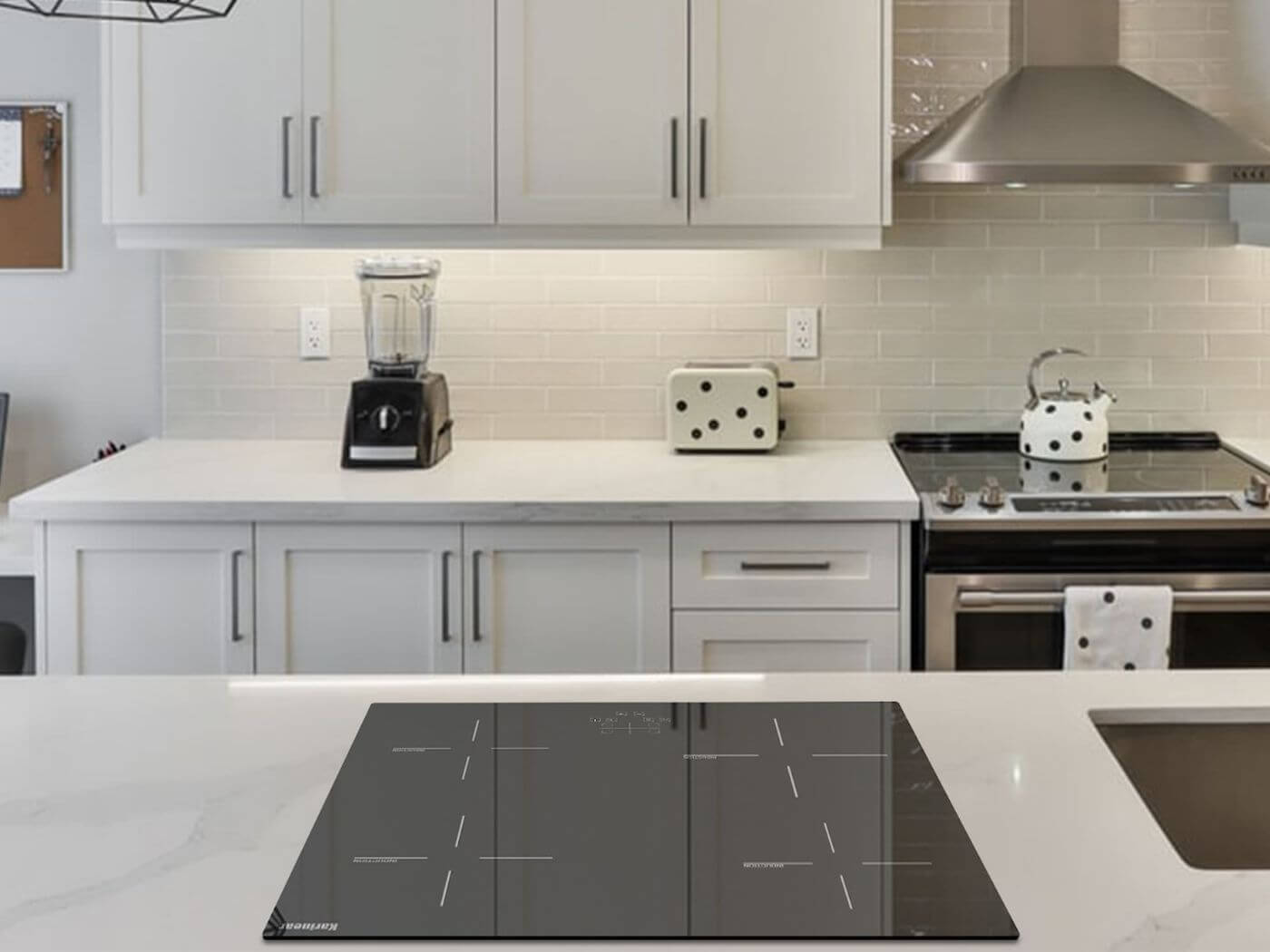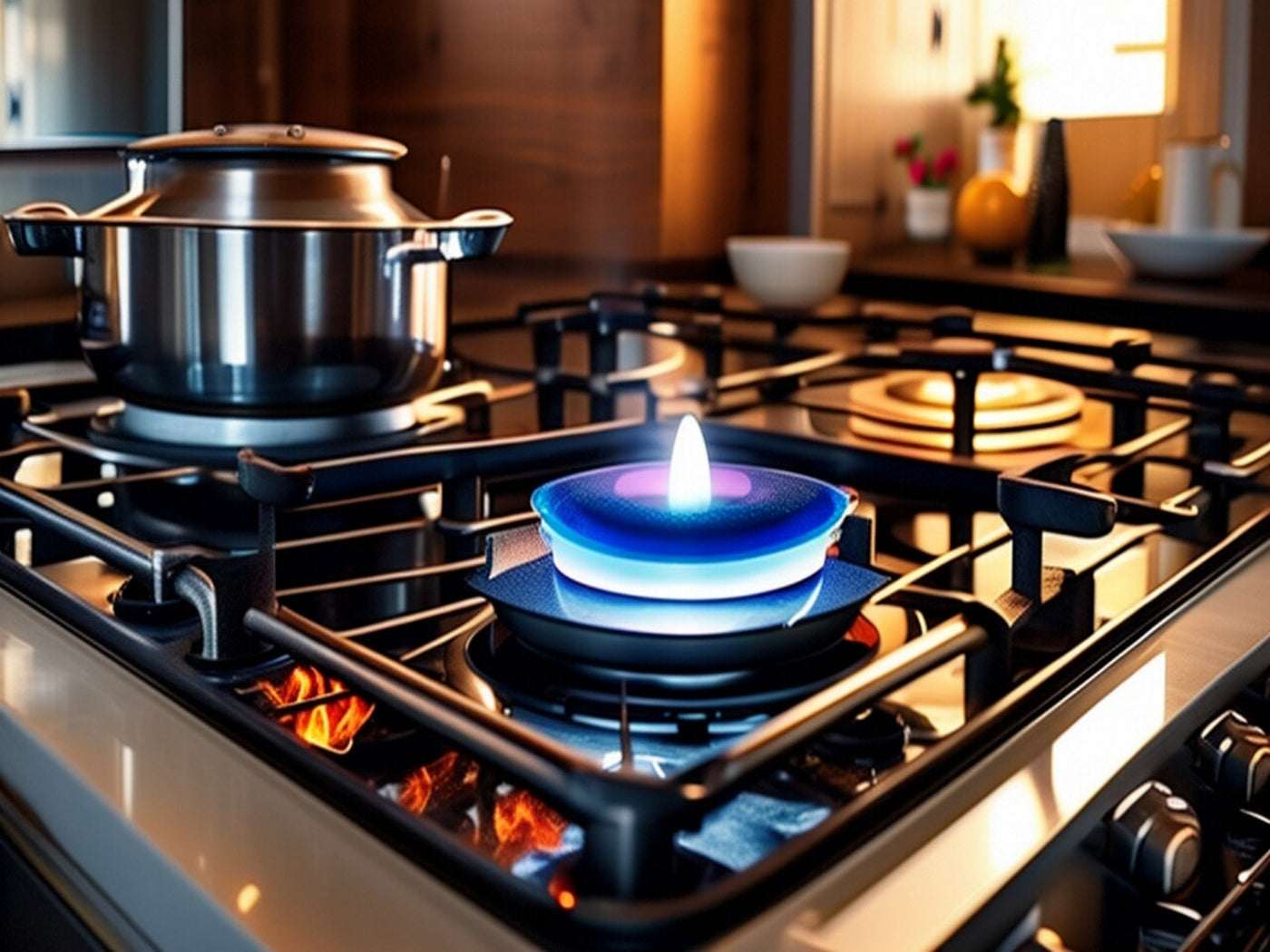
Introduction: The rise of portable electric stoves
In recent years, there has been a significant rise in the popularity of portable electric stoves. These compact and versatile cooking appliances have become a go-to choice for many individuals, whether they are camping enthusiasts, college students living in dorms, or individuals with limited kitchen space. Portable electric stoves offer the convenience of cooking on the go and the ability to prepare meals without the need for a traditional built-in stove top. In this article, we will delve into the benefits and drawbacks of portable electric stoves, compare them to built-in stove tops, and provide useful tips for making the right choice for your cooking needs.

Benefits of portable electric stoves
One of the key advantages of portable electric stoves is their portability. Unlike traditional built-in stove tops, portable electric stoves can be easily moved and used in various locations. Whether you are planning a camping trip, hosting a backyard barbecue, or simply need an extra cooking surface in your kitchen, a portable electric stove offers the flexibility to cook wherever you desire.
Another benefit of portable electric stoves is their ease of use. They typically feature simple controls and settings, making them suitable for individuals of all cooking skill levels. Additionally, portable electric stoves heat up quickly, allowing you to start cooking in no time. This is especially convenient for those who lead busy lifestyles and need a fast and efficient way to prepare meals.
Furthermore, portable electric stoves are often more energy-efficient compared to built-in stove tops. They utilize electricity as their power source, which is generally considered a cleaner and more environmentally-friendly option than gas or other fossil fuels. This not only reduces your carbon footprint but also helps you save on energy costs in the long run.

Built-in stove tops: A traditional cooking solution
While portable electric stoves have gained popularity, built-in stove tops remain a traditional and widely used cooking solution in many kitchens. These permanent fixtures offer a variety of features and options that cater to the needs of avid cooks and chefs. Built-in stove tops come in various styles, such as gas, electric, or induction, each with its own set of advantages and disadvantages.
Advantage of built-in stove tops
One of the primary advantages of built-in stove tops is their larger cooking surface area. This provides ample space for multiple pots and pans, allowing you to cook multiple dishes simultaneously. Additionally, built-in stove tops often offer a greater range of heat settings, providing more precise control over the cooking process. This is particularly beneficial for tasks such as searing, simmering, or maintaining a consistent temperature for extended periods.
Another advantage of built-in stove tops is their durability. These appliances are designed to withstand heavy and regular use, making them a long-lasting investment for your kitchen. Additionally, built-in stove tops are often built with safety features, such as automatic shut-off and flame sensors, ensuring a secure cooking experience.
Comparing the performance of portable electric stoves and built-in stove tops
When it comes to performance, both portable electric stoves and built-in stove tops have their strengths and weaknesses. Portable electric stoves excel in terms of portability and convenience. They offer the flexibility to cook anywhere, making them an excellent choice for outdoor activities or small living spaces. However, they may lack the cooking power and precision of built-in stove tops, especially when it comes to high-heat cooking techniques or professional-grade cooking.
On the other hand, built-in stove tops provide superior cooking performance and versatility. With their larger cooking surface area and precise temperature control, they are ideal for those who love to experiment with different cooking techniques, prepare elaborate meals, or have a passion for culinary arts. However, built-in stove tops may not be as easily accessible or practical for individuals with limited kitchen space or those who frequently move.
Factors to consider when choosing between a portable electric stove and a built-in stove top
When deciding between a portable electric stove and a built-in stove top, there are several factors to consider. First and foremost, assess your cooking needs and lifestyle. If you frequently cook for large groups, require precise temperature control, or enjoy experimenting with various cooking techniques, a built-in stove top may be the better choice for you. On the other hand, if you prioritize portability, convenience, and versatility, a portable electric stove may be the ideal option.
Additionally, consider your available kitchen space and budget. Built-in stove tops require a fixed location and professional installation, which may not be suitable for all kitchens. They also tend to be more expensive upfront, especially if you opt for high-end models or gas-powered stove tops. Portable electric stoves, on the other hand, are more affordable, easily movable, and can be used in various locations.
Tips for using a portable electric stove effectively
If you decide to go with a portable electric stove, here are some tips to ensure you make the most of your cooking experience:
-
Choose a portable electric stove with a sturdy and durable construction to ensure longevity.
-
Use cookware with flat bottoms to maximize heat distribution and prevent hot spots.
-
Preheat your portable electric stove before cooking to ensure even heat distribution.
-
Adjust the heat settings according to your cooking needs and monitor the temperature closely.
-
Clean your portable electric stove regularly to maintain its performance and extend its lifespan.
Conclusion: Making the right choice for your cooking needs
In conclusion, the choice between a portable electric stove and a built-in stove top ultimately depends on your individual cooking needs and preferences. Portable electric stoves offer convenience, portability, and energy efficiency, making them a popular choice for individuals on the go or those with limited kitchen space. On the other hand, built-in stove tops provide superior cooking performance, durability, and versatility, catering to the needs of avid cooks and chefs.
Consider factors such as portability, cooking capacity, control, and budget to make an informed decision. Whether you choose a portable electric stove or a built-in stove top, both options have their own unique advantages and drawbacks. So, take the time to evaluate your requirements and explore the available options before making your final decision. Happy cooking!










